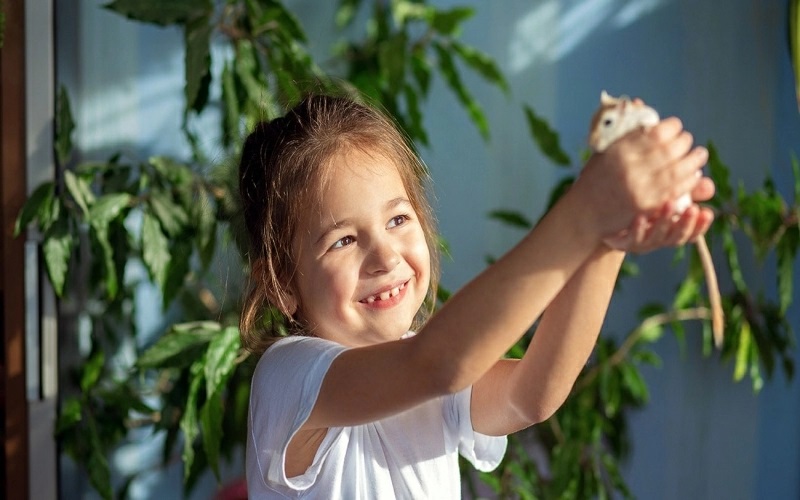JavaScript seems to be disabled in your browser. For the best experience on our site, be sure to turn on Javascript in your browser.
Caring For Your Gerbils: Diet, Cages, and Handling

Gerbils belong to the family of rodents, however, unlike hamsters, they need a different and special type of care. A Lot of people choose hamsters because they are easy to take care of and do not require much maintenance. Gerbils are also the perfect starter pets for kids, but it is important to know the facts about gerbils and how to take care of them before bringing them home.
Some things you should know about your Gerbil
- Gerbils which are also known as "desert rats" are accustomed to hot temperatures and climates where they would burrow in the sand.
- Gerbils are smaller and usually require a companion when purchasing. It is important to get your gerbil another gerbil to play with and bond with.
- While hamsters tend to lay and explore on the surface of beddings, gerbils tend to burrow in beddings and would often create little tunnels.
Your Gerbil Food And Treats
Gerbils need certain kinds of food and treat that you can find here. The bulk of your pet's food and treats comprises small seeds and pieces of fruit.
You can also get treats for your gerbil. It is often important to give your gerbils a treat once in a while, as this furnishes your time for you to bond with your pet while it enjoys its snack. You also need to put a water bottle in your gerbil's home. Make sure you check its water every day to make sure it has enough.
Your Gerbil Cages Setup
Generally, a hamster cage can work just fine for gerbils as well. However, it is important to note that you might need to consider a bigger cage in the future. Gerbils like to burrow and create tunnels so they tend to need more space. They are also very active creatures and require a certain amount of exercise. If you do decide to go with a hamster cage to start, do not purchase or use small plastic cages with tubing. Gerbils work better with wired cages that are a little more spacious so they have room to dig.
Starting with a smaller cage is fine, but consider the advantages of giving your pets more space to explore, exercise, and have fun.
We have gerbil cages that would give your gerbil ample space to dig tunnels in the bottom of their habitat, and also enough room to climb and eat and enjoy treats at the top of their habitat.
Gerbils tend to bury their food even if you put it in a bowl. They also poop wherever in their cage, so it is crucial to clean their cage a minimum of two times every week. When cleaning, make sure you remove your gerbils and put them in a safe space, like a box with bedding in it, while you clean out the cage.
Have someone in the room to look after your gerbils while you clean their cage because they are very curious creatures and will look for ways to climb out of the box and run around the room if you aren't careful.
When cleaning, simply remove the top and dump the bedding into the trash.
If you think you need to wipe down the bottom of the cage, do so with a wet washcloth or paper towel.
Do not use water or some cleaning products as this would be detrimental to your pets.
Your Gerbil Healthcare
Gerbils are relatively healthy. Nonetheless, it is great to scrutinize your gerbil’s condition and behavior every day. Some early danger signs that may indicate illness in your Gerbil include weight loss, the decline in activity, change in the appearance of the fur, and change in the color, consistency, smell, or amount of urine or feces. If any of these changes happen, it is best to bring your gerbil to a veterinarian.
If your gerbil’s weight remains constant then it is eating the right amount of food but if its appetite or water consumption suddenly changes or it suddenly starts to gain or lose weight, you should be concerned.
Ensure all Gerbil healthcare products you need for your pet are in your first aid kit










